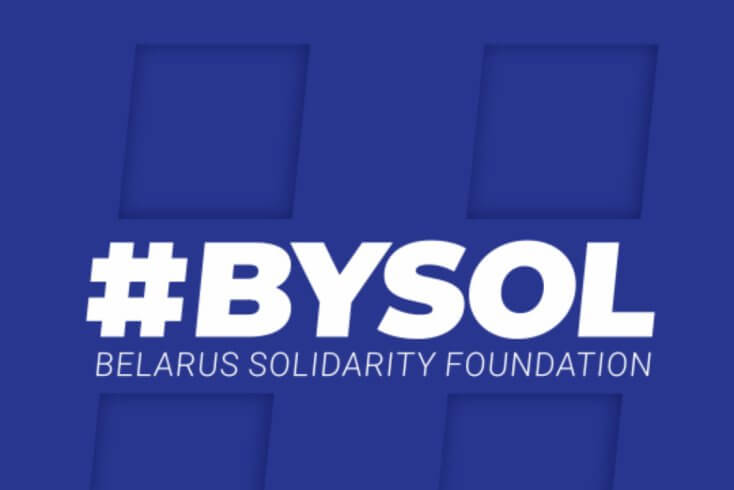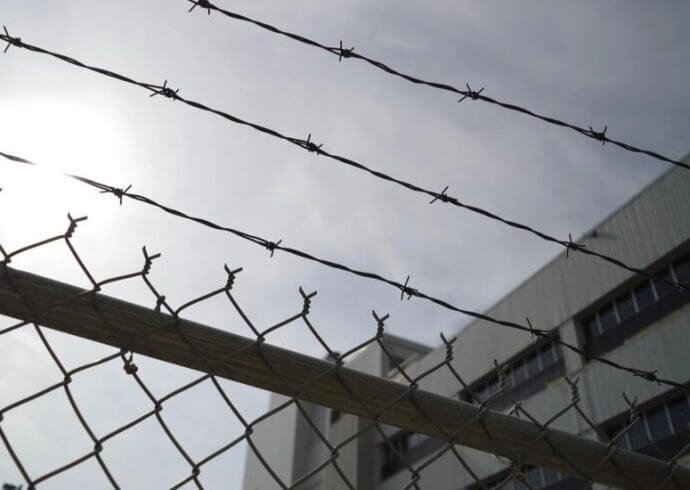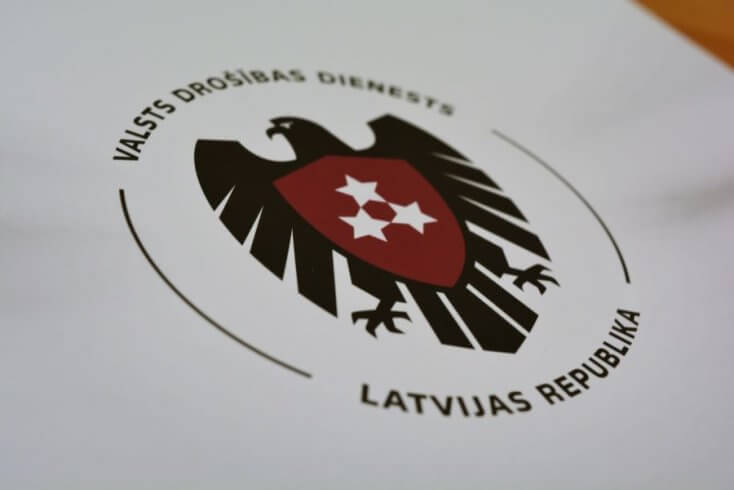Belarusian, Lithuanian politicians discussing strategy, seeing Ukraine talks as an opportunity
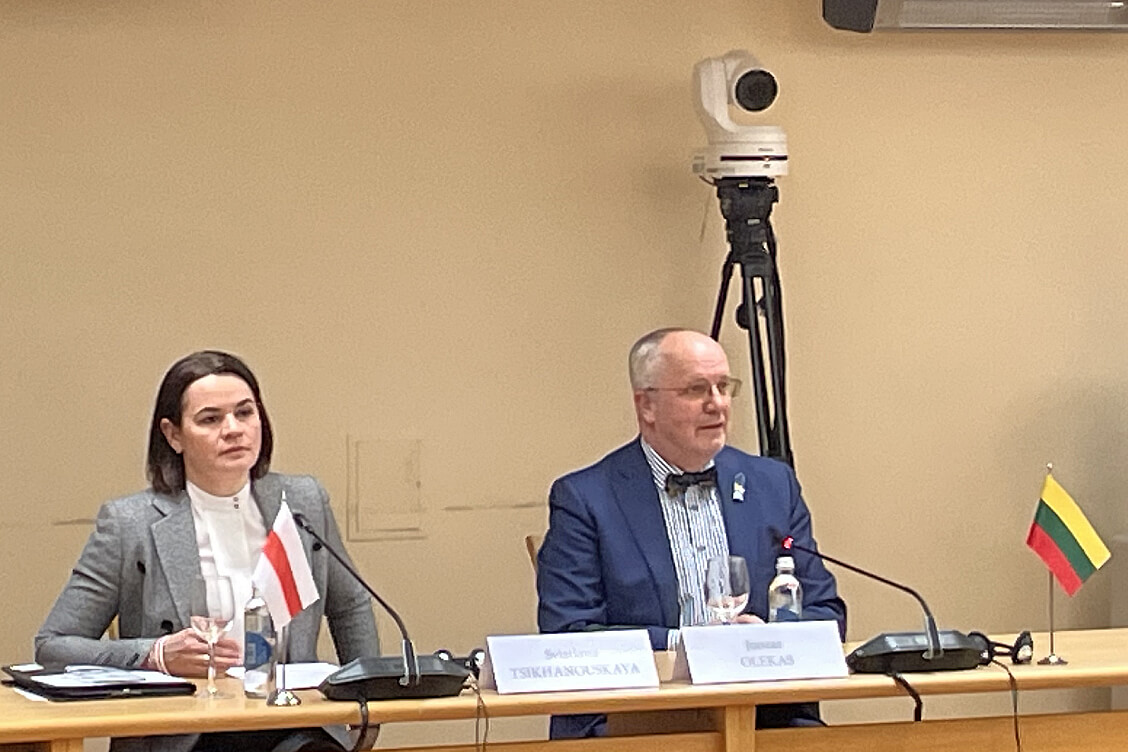
March 26, Pozirk. Śviatłana Cichanoŭskaja has said at a roundtable conference at the Lithuanian Seimas that Alaksandar Łukašenka’s government is confused amid Ukraine peace talks because it uses “the war to justify its reprisals and as a source of revenue.”
“The new situation creates difficulties for the regime but may also create new opportunities for the Belarusian democratic movement,” the Belarusian opposition leader said. “So today, I suggest discussing our common strategy to pull Belarus out of Russia’s control and weaken Łukašenka’s and [Russian President Vladimir] Putin’s regimes to protect ourselves from a new aggression. And, most importantly, to strengthen our societies.”
During the round table on challenges and opportunities facing Belarus and Lithuania, Valer Karbalevič, a Belarusian author and commentator, noted that the key question for Belarus is where the iron curtain will descend, along its western or its eastern border.
Karbalevič recalled that at February’s Munich Security Conference, Ukrainian President Volodymyr Zelensky said that it would be better to draw the line between dictatorship and democracy along Belarus’ eastern border, making Belarus “part of the European community.”
“Clearly, it is impossible to implement that idea as long as Alaksandar Łukašenka’s regime is in power. So we cannot talk about a stable peace in our region without democratic transformation in Belarus,” he stressed.
In his opinion, Europe underestimated the significance of the 2020 postelection unrest in Belarus.
“European politicians considered it to be a domestic political problem or conflict, a problem of democracy and human rights . . . But . . . the unsolved domestic political problem in Belarus soon spilled over its borders,” he said. “Łukašenka’s regime has transformed into a major . . . threat to regional security from a government that considered itself a security donor. I mean the problem of migrant attacks on its neighbors, the [forced] landing of an aircraft with an opposition activist, support for Russia in its war against Ukraine, the deployment of nuclear weapons, and possible deployment of the Oreshnik missile system in the near future.”
“Belarus’ internal political issue is not only Belarusians’ problem. It should be [viewed as] a serious problem for the European community,” Karbalevič added.
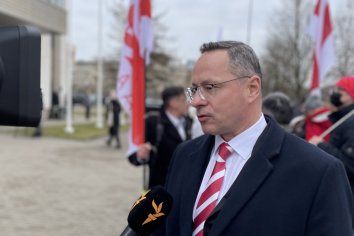
Lithuanian MP calls for joint effort to consolidate Belarusian freedom
- Politics
- Economy, PoliticsUS Treasury publishes general license authorizing Biełaruskalij transactionsThe material is available only to POZIRK+
- PoliticsRelease of hundred political prisoners insufficient step – rights groupsThe material is available only to POZIRK+
- Security, Society
- PoliticsNausėda: Lithuania supports US effort to secure release of Belarus’ prisonersThe material is available only to POZIRK+
- Politics, SecurityLithuanian foreign minister welcomes EU’s new tools to respond to Belarus’ “malicious activities”The material is available only to POZIRK+
- PoliticsFrance urges Minsk to stop imposing politically-motivated prison sentencesThe material is available only to POZIRK+
- Politics, SecurityReleased activists speak with Ukrainian president, Lithuanian prime ministerThe material is available only to POZIRK+
- Politics, SecurityBelarusian defense minister meets with Zimbabwean counterpart in HarareThe material is available only to POZIRK+
- Politics, SecurityEU broadens scope of sanctions to cover hybrid activitiesThe material is available only to POZIRK+
- Economy
- PoliticsKyiv: Łukašenka to face justice for crimes against Belarusians and UkrainiansThe material is available only to POZIRK+
- Germany news, Politics
- EconomyBelarus’ money supply up 19 percent since year’s start – central bankThe material is available only to POZIRK+
- Politics
- PoliticsMinsk condemns terrorist attack in SydneyThe material is available only to POZIRK+
- PoliticsCichanoŭskaja’s team assisting freed dissidents relocate to EUThe material is available only to POZIRK+
- Germany news, Politics
- Politics, SecurityLithuania credits US envoy with helping stop Minsk’s hybrid attacksThe material is available only to POZIRK+
- Society
